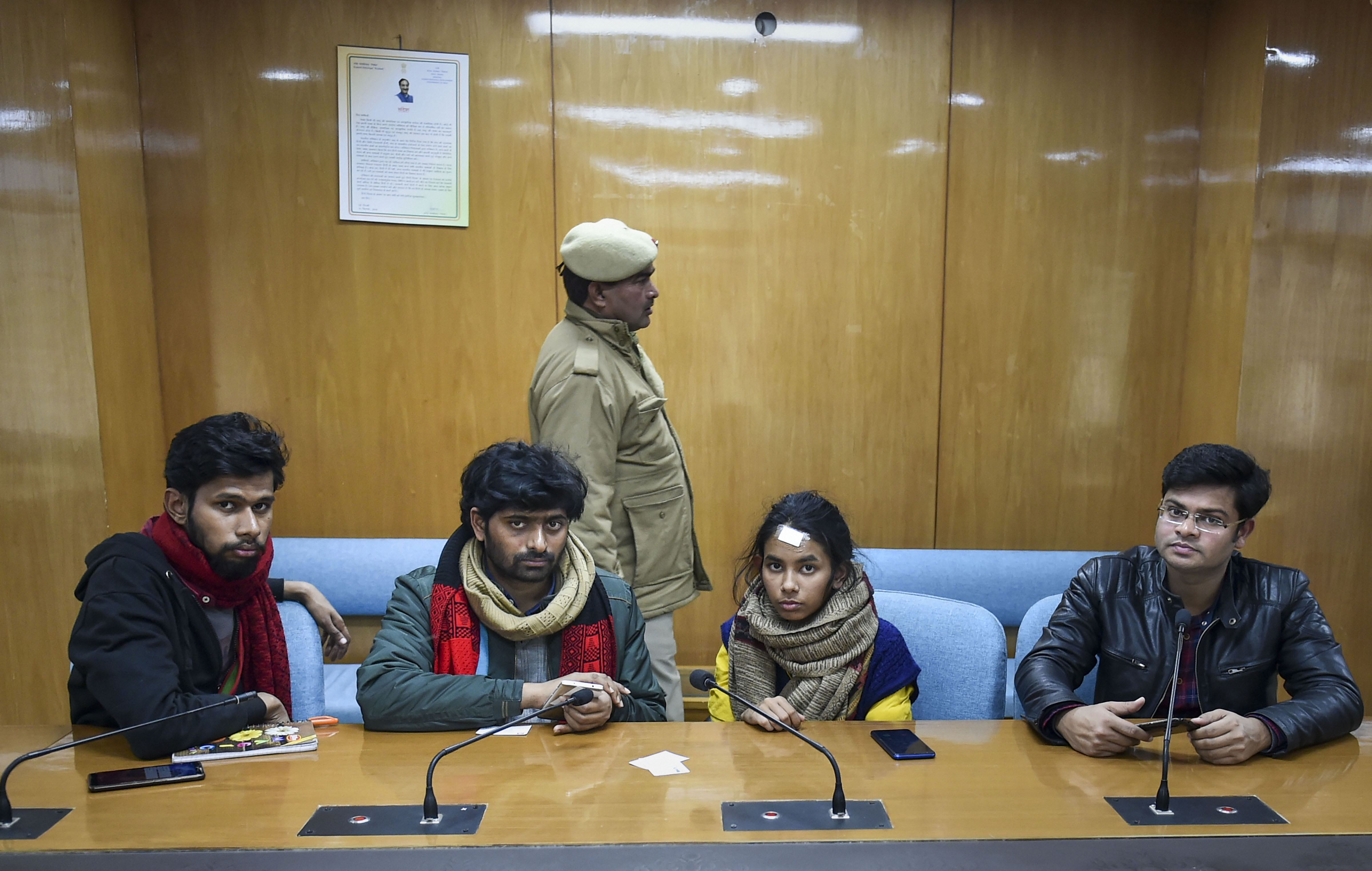
Delhi police omit critical aspects to pin down Aishe Ghosh

In Kerala, there is an old rustic saying which testifies to the might of the powers that be. It reads: ‘Aadine patti akkuka’ – meaning ‘to turn a meek goat into a terrible dog.’ In the beginning of the 20th century, when the Left was gaining a foothold in Kerala, the idiom was widely used against the police to describe how the meek and the weak were arrested, false crime admissions extracted and portrayed as dangerous criminals.
The adage seemed to suddenly come true as the Delhi police seemed to conveniently obliterate the most crucial part of the January 5 attack on the JNU students by armed goons.
Also read | Police rely on ABVP’s proof, says Aishe Ghosh involved in violence
The Delhi police press briefing on Friday (January 10) turned out to be a sham as Deputy Commissioner of Police Joy Tirkey narrated the sequence of events that pointed to the likes of JNUSU president Aishie Ghosh and others as conspirators and executors of the attack.
The police systematically used the same photos used by the ABVP to ‘implicate’ those who bore the brunt of the attack.
Also read | Smriti Irani’s attack on Deepika is typical right-wing mix of canards and bluster
Seasoned investigators said the police had not apparently resorted to telephone tower dumping to identify ‘outsiders’ who had crept in. (This is a cyber forensic methodology wherein investigators go through hundreds of call data records to narrow down on people present in a triangular location). Investigators said this was no conclusive evidence but an ‘investigative pointer’ which usually led them to the culprits.
A former assistant commissioner of police, who spoke on condition of anonymity, told The Federal that the charge-sheet would need to include details of the ‘weapons used’ by the miscreants. But the Delhi police seem to have turned a blind eye to the sticks, clubs, and sledgehammers carried by the goons on the night of the attack.
Also read | Why is Delhi Police biased, asks Aishe Ghosh on being accused of violence
Also, a right wing group called Hindu Raksha Dal had claimed responsibility for the attack citing ‘anti-national activities at JNU.’ Its leader Pinki Chaudhary said, “The University has been a centre of communism-related activities. They abuse our religion and our nation. This would not be tolerated,” Pinki said. The Delhi police seem to have ignored this too.
The deliberate omissions seem to only bolster the case against those who suffered badly in the attack. It could only be a reminder of how a totalitarian state can punish legitimate dissenters.
The government intends to send out a message to the masses that all contrarian voices will be crushed, even if there is an evident, visible, explicit, and violent negation of law and human rights by the state.
Also read | Deepika visits JNU campus, BJP leader seeks boycott of her movies

